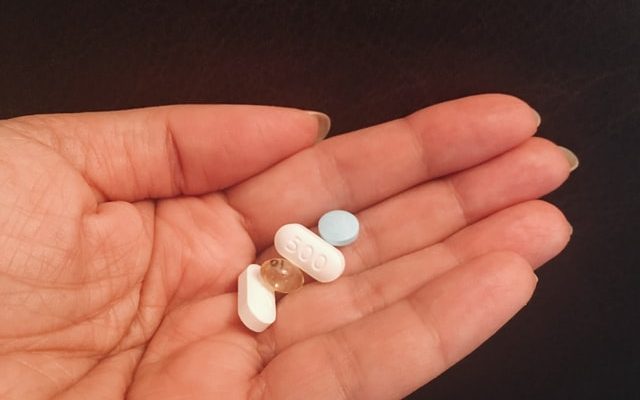What You Must Know Before Taking Any Health Supplement

Health supplements are meant to boost your daily intake of essential nutrients.
Today, there are plenty of dietary pills being sold in the market. These include vitamins, herbs, minerals, amino acids, and enzymes. Also, they come in various forms: tablets, powders, capsules, energy bars, and beverages.
If you are thinking about boosting your health, here are the benefits, risks, and other important considerations you should note before taking health supplements.
Table of Contents
Benefits of Taking Supplements
Ideally, you need to get all the nutrients your mind and body require from a well-balanced diet. However, scientists have discovered that most crops today are less nutritious than those grown decades ago. This is caused by soil depletion, fast industrialization, and the shift towards urbanization. So a great way to get additional nutrients is to take supplements.
Often, multivitamins are recommended. Some quick research on vitamins will tell you that multivitamins can deliver the extra boost of essential nutrients that your body requires. Also, these pills are generally safe since they only contain small amounts of each nutrient.
But if you have deficiencies in certain vitamins and minerals, or you want to manage some health conditions, you need to take individual nutrients. Having an iron deficiency, for instance, will require you to use iron supplements alone. But to keep your bones strong, consider taking calcium and vitamin D as well.
The Risks Involved
There are plenty of supplements that contain active ingredients which can greatly affect how your body performs. As such, you should be alert to the possible side effects, especially if it is your first time to take supplements.
Be aware that supplements often cause unexpected side effects if you choose to take them in certain situations. For instance, they could affect your response to anesthesia if you take them before undergoing surgery. Some supplements can even increase your risk of bleeding. Vitamin K, for example, will reduce the effectiveness of blood thinners.
Furthermore, these pills can interact with your prescribed medicines if you take them at the same time, as this could cause problems. For instance, vitamin C can reduce the effectiveness of chemotherapy.
Another significant risk of supplementation is taking more than what your body needs. Taking an excessive amount of iron, for instance, can lead to vomiting and organ damage. Too much vitamin A, on the other hand, will result in headaches, birth defects, and reduced bone strength.
Be cautious also about taking health supplements if you’re pregnant or nursing or when giving them to your kids. Remember that most supplements on the market today have not yet been tested for safety in children, nursing moms, and pregnant women.
How to Choose a Safe and Effective Supplement
But the only way to get the most out of your health supplements and avoid such risks is to choose a safe and effective dietary supplement.
1. Look for quality assurance seals
Quality assurance seals will convey confidence that manufacturing companies are producing trustworthy products. Dietary supplements with these seals are considered reliable.
For instance, GMP means that the company adheres to good manufacturing practices to ensure its product’s purity, composition, identity, and strength. These practices were established to prevent the addition of too little or too much of ingredients, the inclusion of wrong ingredients, incorrect product labeling and packaging, and the possibility of contamination. These facilities are inspected periodically to ensure that they are manufacturing safe and effective health supplements.
Moreover, there are independent organizations like NSF International that offer quality testing. Products that were tested by these organizations display seals of approval, giving assurance that the product contains everything that is listed on the label and doesn’t have any contaminants.
2. Verify that the product has been tested
You must ensure that the health supplement you want to take has been tested and verified. Companies make sure that health and wellness products are safe and effective by helping laboratory researchers. They supply reference standards, including botanical reference materials to laboratories for accurate testing.
3. Check the list of ingredients
The product label should inform you of all its ingredients, including inactive ingredients like binders and flavorings. It should contain the quantity per nutrient per serving and the percentage of Recommended Dietary Allowance.
Furthermore, look for cautionary statements. Reliable supplements will also list potential allergens on the labels, such as soy, shellfish, and peanuts.
4. Look for the expiration date
The expiration date may be found on the bottle’s label or bottom part. Though it isn’t a requirement for manufacturers to place the date of expiration, this will indicate the potency of the supplement. Consider choosing one with the longest shelf life.
5. Consult your physician
Before taking any dietary supplement, it is best that you consult your physician about it first, especially if you have an underlying medical condition or you’re a senior with health concerns. Healthcare providers know what is best for your overall health. They are your best partner in determining which of the many supplements is best for you.
Deciding on whether to take a health supplement or not and which ones to choose is a critical matter. You need to know the benefits and risks and what makes them safe and effective supplements. Most importantly, consult your doctor and decide together which health supplements will benefit your overall health and well-being.
About The Author:
Frank L. Jaksch Jr. is the Chief Executive Officer and a co-founder of ChromaDex. He oversees research, strategy, and operations for the Company with a focus on scientific and novel products for pharmaceutical and nutraceutical markets. Mr. Jaksch earned a B.S. in Chemistry and Biology from Valparaiso University.










